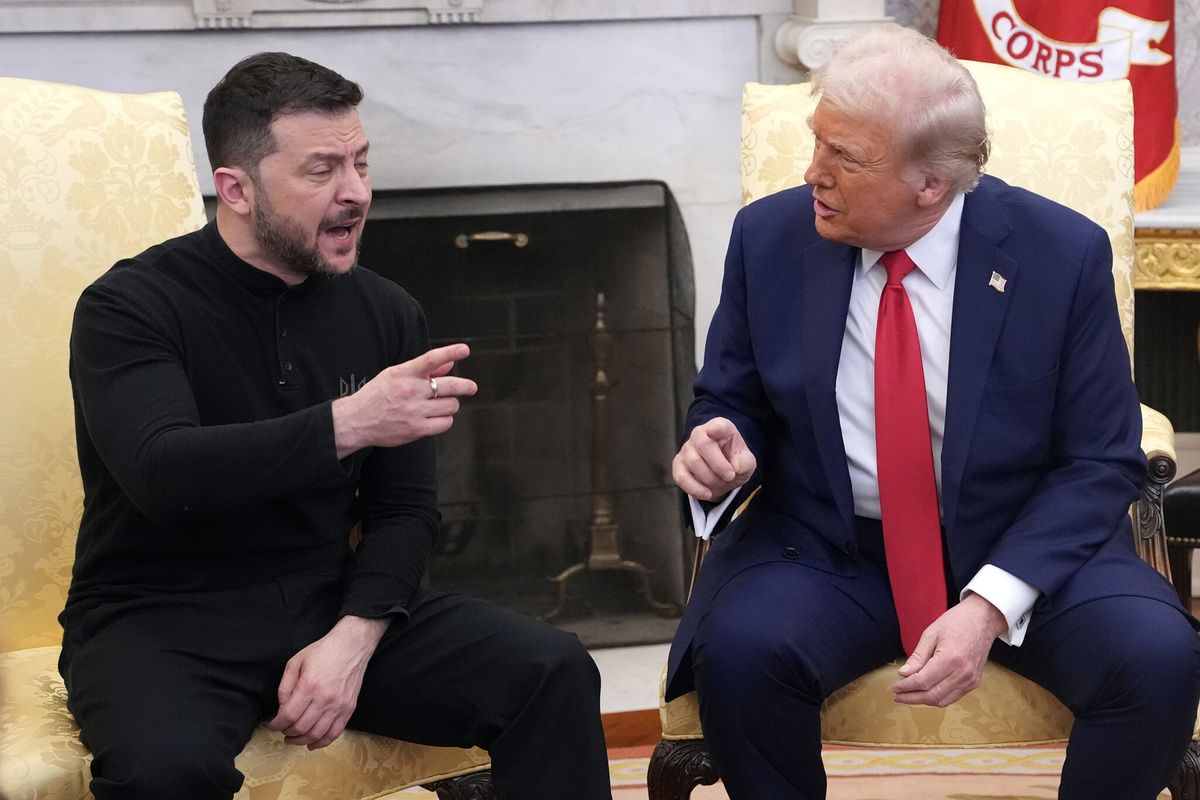American exceptionalism comes in many forms. When it comes to intelligence, there has been a unique tradition in the United States for more than 60 years: the current president grants his two possible major-party successors access to Top Secret information in post-convention briefings. These election cycle presentations, which began last week with Donald Trump’s session in New York and continue with Hillary Clinton’s on Saturday, take place under unusual circumstances.
This custom began in 1952, when Harry Truman offered classified briefings to the presidential hopefuls. Every four years since then, the Democratic and Republican nominees have had access to all-source, classified assessments of global hotspots in sit-down sessions with intelligence professionals. The briefings stop short of the top tier of presidential intelligence, the President’s Daily Brief, which has only been provided to presidents-elect immediately after the election.
Yet until this year, even many who followed electoral politics closely didn’t know about this tradition. No statute requires such a courtesy, after all, and political pressure neither spurred it nor maintains it.
Instead, as former CIA Deputy Director Michael Morell has explained on The Cipher Brief, the current administration helps protect national security for the remainder of its term and into the next by giving the candidates “a deep sense of the national security landscape.” The hope? That this tour d’horizon will give candidates pause before saying something on the campaign trail about foreign affairs that might damage U.S. interests. Better that the aspirants to the presidency learn the classified take on hot-button world issues before the prime-time debates, when misplaced commentary could cause real harm. As former President Jimmy Carter said when reflecting on his 1976 campaign intelligence briefings, “I wanted particularly not to make any inadvertent mistake that would complicate things for President Ford . . . or later for me.”
The sessions also allow the intelligence community to demonstrate the objectivity and nonpartisanship that characterize both its assessments and its role in the larger political arena. Misconceptions about intelligence abound; classified briefings for each candidate that feature the same issues and the same analytic judgments show off the professionalism of the nation’s spy agencies. We’ve come to take for granted that the CIA and other agencies serve each occupant of the Oval Office regardless of that person’s political philosophy and governing style. Reminding nominees of this fact via steadfastly neutral campaign briefings firms up the foundation of ongoing policymaker-intelligence relationships.
And it doesn’t hurt that these sessions help prepare each candidate for the immense responsibilities of the job, should he or she win. That purpose has faded over time, but it mattered to the man who started the traditional briefings. Truman, after all, learned about major national security issues, including the very existence of the Manhattan Project, only after assuming the presidency. Even now, the roughly 75 days of election-to-inauguration transition time for the most important job in the world remains so short that providing presidents-elect with something during the campaign makes sense.
The two major party candidates have benefitted from this institution for more than 60 years. The briefings confer a sense of approval, even a badge of respectability, on those who receive them. Conversely, any such implied mark of approval is withheld from those who are denied the sessions.
Something different is brewing in 2016. The Republican and Democratic candidates continue to carry the two highest unfavorability ratings in recorded history. Doubts have been expressed about whether Donald Trump will be able to stop himself from publicly blurting out classified information that he hears in his intelligence briefing. And FBI Director Jim Comey’s public statement that Hillary Clinton had been “extremely careless” in her handling of classified information in her emails while Secretary of State raises anxieties among many about her Top Secret access.
If there is ever a time to reform the system for providing intelligence briefings to candidates, it is now. A good start would be broadening the intelligence briefings to a viable third party this election cycle.
First, including a third party would acknowledge reality. The two-party system is falling out of favor with many voters, and even with significant minorities inside the Republican and Democratic camps themselves. Some polls have shown national support for the Libertarian Party ticket of former New Mexico Governor Gary Johnson for president and former Massachusetts Governor William Weld for vice president nearing 15 percent. That’s remarkable for a third party, any third party, especially in a year with such intense focus on the two major-party media magnets.
Second, it would prevent a potential disaster at the presidential debates. The threshold for any potential participant’s inclusion, set by the Commission on Presidential Debates, currently stands at 15 percent support in five national polls before the debates—putting the Libertarians within striking distance this year. If the briefings aim, even in part, to keep candidates from saying something dangerous in public that could harm national security, why exclude a candidate like Gary Johnson who approaches that threshold and may find himself in the debates?
Third, bringing a third party into the circle would demonstrate that the process of providing intelligence briefings is not politicized. Alternatively, refusing to offer the classified sessions to anyone not from the same two parties that have always been briefed favors the status quo, contributing to the system’s ossification.
U.S. intelligence has always been devoted to objectivity and nonpartisanship. In this case, that should mean being open to something other than “the way it’s always been done before.”











